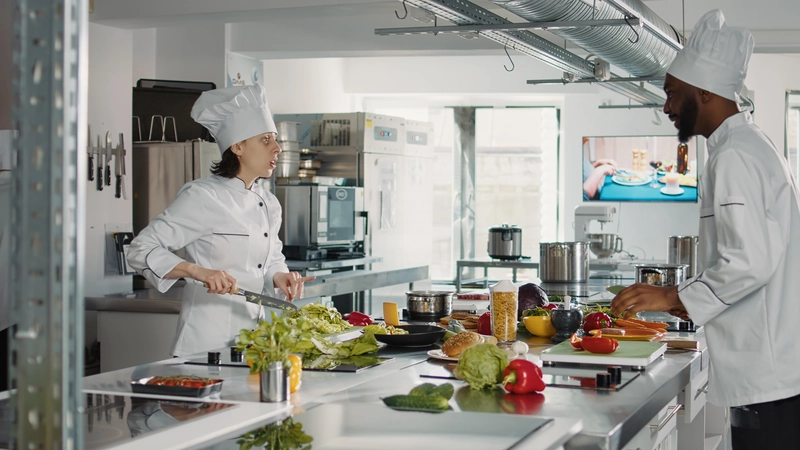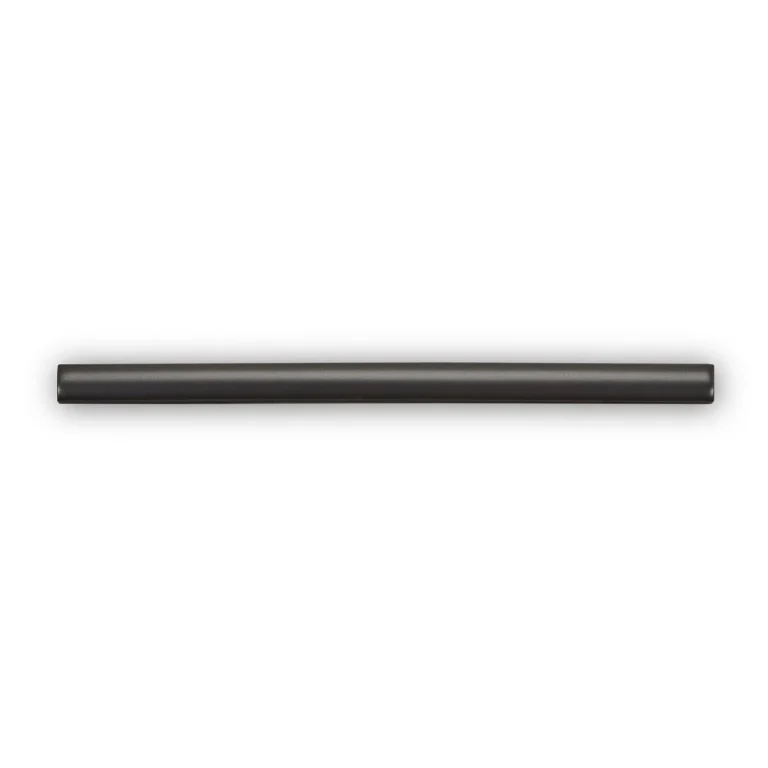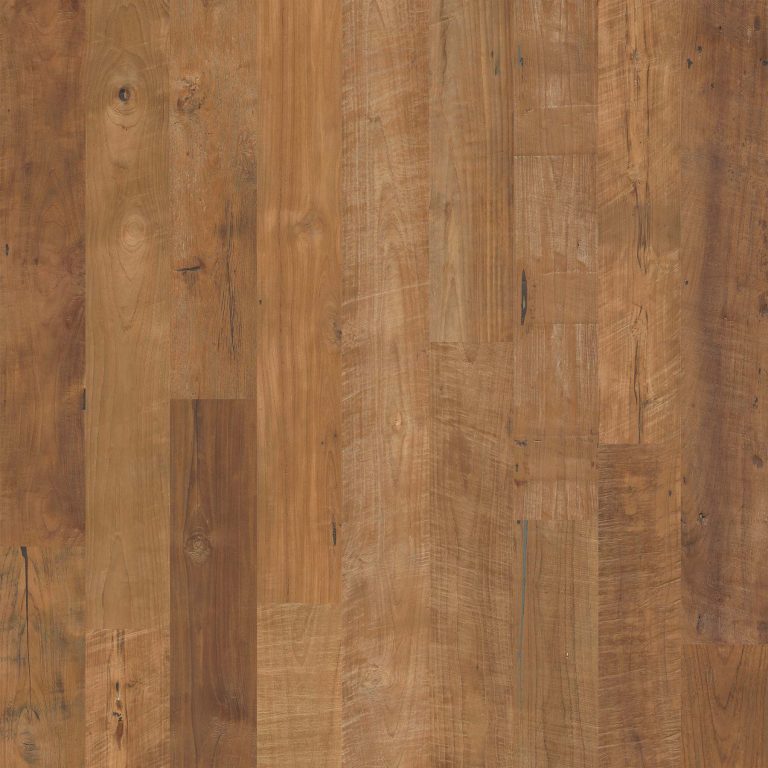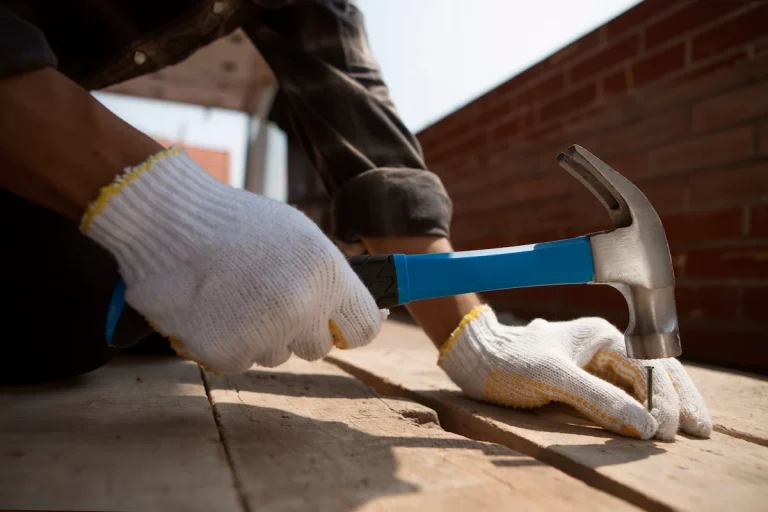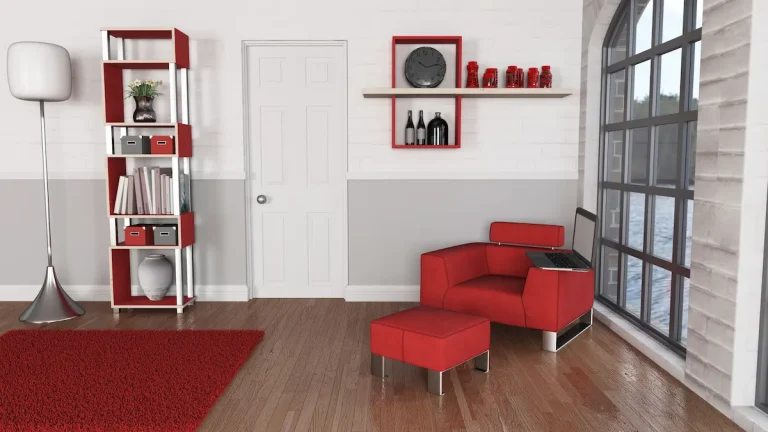Choosing the right commercial kitchen flooring is crucial for safety, efficiency, and longevity, considering factors like hygienic flooring and impact resistance. With the high demands of a bustling kitchen environment, not all flooring options will meet the rigorous standards required.
This article explores the essential qualities that make flooring suitable for commercial settings, such as durability options, slip resistance, and ease of cleaning.
It also covers various flooring types, their pros and cons, and key factors to consider, ensuring you make an informed choice for your kitchen.
What Makes a Flooring Suitable for Commercial Kitchens?
Choosing the right flooring for commercial kitchens is crucial, as it not only affects the aesthetics and functionality of the space but also plays a significant role in maintaining hygiene and safety standards.
a. Durability
Durability is a fundamental aspect of flooring in commercial kitchens, as it must endure the significant wear and tear associated with heavy foot traffic, high durability demands, and the movement of equipment.
In environments where high efficiency is crucial, selecting a flooring material that can withstand the rigours of daily operations is essential. Options like epoxy resin flooring are particularly favoured due to their strength and seamless nature, making them easy to clean and resistant to stains and spills.
Vinyl flooring offers a cost-effective solution while providing excellent abrasion resistance, a key consideration in bustling kitchen settings.vConcrete, when treated properly, creates a durable and robust surface that can handle both high traffic and heavy equipment. If slip resistance is also a priority, rubber flooring could be an ideal choice as it combines comfort with durability and anti-slip properties.
Each of these materials presents unique advantages, making it important for kitchen planners to evaluate their specific needs before making a selection.
b. Slip Resistance
Slip resistance is crucial in commercial kitchens, as wet and greasy floors can result in accidents, making it imperative to choose flooring materials with excellent anti-slip properties.
Ensuring a safe working environment requires careful consideration of various slip-resistant flooring options available. Many establishments are exploring materials such as:
- Rubber flooring – Known for its superior grip and cushioning, rubber is ideal for high-traffic areas.
- Textured vinyl – Offers a stylish solution while meeting health and safety standards regarding slip resistance, often featuring a textured surface to enhance grip.
- Concrete coatings – These can be customised with additives that create a non-slip surface, effectively combating hazards.
Each of these options plays a vital role in not just preventing slips but also in enhancing overall safety, employee safety, and productivity within the workplace. Selecting the right material is essential to comply with regulations and promote a secure environment for all employees.
c. Heat Resistance
Heat resistance is another critical factor when selecting flooring for commercial kitchens, especially in areas involved in food preparation and near cooking equipment, where high temperatures and potential spills of hot liquids can lead to significant damage and compromise safety standards, such as health safety standards.
Choosing the right flooring materials can make all the difference in maintaining a safe and efficient kitchen environment. Those managing such spaces should consider the following materials that offer not just durability but also superior heat resistance, chemical resistance, and environmental protection:
- Vinyl Flooring – Known for its resilience, this material handles both high temperatures and cleaning chemicals with ease.
- Ceramic Tiles – These are highly resistant to heat and are easy to clean, making them ideal for kitchens.
- Epoxy Flooring – A popular choice for its seamless finish and resistance to heavy equipment and thermal shock.
By selecting heat-resistant flooring, kitchen managers can protect their investment and ensure a safe working environment, significantly reducing the risks of damage and maintaining hygiene standards and cleanliness standards.
d. Water Resistance
Water resistance is vital in commercial kitchens to prevent moisture penetration that can lead to mould and deterioration of flooring.
In environments where spills and humidity are common, selecting flooring with an impervious surface safeguards the integrity of the area, preventing grout failure and staining issues. When the surface is non-porous, it reduces the risk of bacteria build-up and enhances the kitchen’s overall hygiene. Understanding this, operators should prioritize materials like tiles, vinyl, and epoxy coatings, which effectively repel moisture.
To maintain these water-resistant properties, regular cleaning is essential. Frequent mopping with appropriate cleaning solutions can help keep surfaces in optimal condition. Inspection for potential cracks or chips should also be a part of routine maintenance, as they can compromise waterproofing.
Ultimately, ensuring proper upkeep not only prolongs the lifespan of the flooring but also contributes to a healthier, safer culinary environment that complies with health regulations.
e. Ease of Maintenance
The ease of maintenance is a key consideration in commercial kitchen flooring, as it significantly influences the overall cleaning process and associated maintenance costs.
When evaluating flooring options, one must consider how different materials perform in high-traffic kitchen environments. For instance, vinyl and ceramic tiles are generally easier to clean due to their smooth, non-porous surfaces, which help prevent the build-up of dirt and bacteria. In contrast, alternatives like textured rubber or wood may require more effort to maintain, often leading to higher long-term maintenance costs.
Choosing flooring that simplifies compliance with food safety management standards, such as HACCP, is crucial. Non-slip surfaces help prevent accidents while ensuring easy cleaning and maintenance requirements. Seamless flooring reduces grime accumulation. Durability ensures longevity and high durability, minimising the frequency of replacements.
By prioritising low-maintenance and affordable flooring options, restaurants and cafés can enhance both hygiene and efficiency, ultimately contributing to a safer dining experience.
Types of Commercial Kitchen Flooring
What is the best flooring for a commercial kitchen? When considering commercial kitchen flooring options, several types stand out, each with unique characteristics that cater to the specific needs of the food service industry, including commercial flooring solutions:
1. Ceramic Tile Flooring
Ceramic tile flooring is a popular choice for commercial kitchens due to its durability and ease of cleaning maintenance. Plus its remarkable resilience, it offers an array of aesthetic options, making it an ideal fit for both industrial and residential spaces. Many find that ceramic tile flooring stands up well against the rigours of daily use, offering a long-lasting solution that can withstand heavy foot traffic and heavy traffic environments.
It’s essential to consider some drawbacks as well.
- Durability options: While it is generally strong, certain tiles may chip or crack under extreme pressure, which could necessitate costly repairs and installation repair.
- Cleaning requirements: Although cleaning is straightforward, grout lines may require special attention to prevent discolouration and grout failure.
- High traffic areas: It’s particularly suited for high-traffic locations, but users should be mindful of its potential slipperiness when wet.
When evaluating ceramic tile flooring, both its advantages and limitations warrant careful consideration.
2. Vinyl Flooring
Vinyl flooring is often favoured in commercial kitchens for its affordability and ease of cleaning, along with its good slip resistance.
This versatile flooring option provides a range of benefits that make it an ideal choice for both residential and commercial environments. The low-cost alternatives available ensure that business owners can stay within budget while still achieving a stylish look.
Maintenance needs are minimal, as a simple mopping can keep it looking fresh, enhancing its appeal for busy kitchens. Vinyl flooring boasts excellent wear resistance, making it durable enough to handle the foot traffic commonly found in such settings. Its slip-resistant surface further contributes to safety, reducing the likelihood of accidents and injuries. For those seeking low-cost options, vinyl offers affordability without compromising on quality.
- Affordable pricing: Ensures accessibility for all, with import regulations favoring cost-effectiveness.
- Simple cleaning routines: Save time and effort, often requiring only basic maintenance.
- Durability makes it a long-lasting investment, with certified options available for additional assurance.
Altogether, choosing vinyl flooring can significantly enhance both the functionality and aesthetic appeal of any kitchen space.

See product: Karndean Art Select Slate Melbourne
3. Rubber Flooring
In the UK, rubber flooring is a popular choice in commercial and restaurant kitchens due to its excellent slip resistance and anti-slip properties, which enhance employee safety.
Rubber flooring is highly regarded in commercial kitchens for its excellent slip resistance and anti-slip properties, which enhance employee safety.
This flooring material not only provides superior traction to reduce slips and falls, but it is also comfortable to stand on for extended periods, making it suitable for busy shifts in high-traffic areas. Additionally, rubber’s impact-resistant nature helps in preventing wear and tear over time.
When evaluating rubber flooring, it is important to weigh both the benefits and drawbacks. Among the advantages are:
- Safety: The cushioning effect minimises the impact on joints, promoting better ergonomics.
- Durability: Resistant to stains, moisture, and heavy foot traffic, it can withstand the rigours of a commercial kitchen.
- Easy Maintenance: Cleaning is straightforward; a simple mop with warm soapy water usually suffices, and pressure cleaning can be used for more thorough maintenance.
There are also some concerns to consider:
- Initial Cost: While durable, rubber can be more expensive to install compared to other materials.
- Odour: New rubber flooring may emit a strong smell that can dissipate over time.
When implementing rubber flooring in areas such as prep zones and near dishwashing stations, it can provide an optimal balance of safety and functionality. For installations, considering specialist contractors can ensure adherence to safety and performance standards.
4. Epoxy Flooring
Popular in restaurant kitchens, epoxy flooring is known for its high performance, including heat resistance and chemical resistance, making it an ideal choice for commercial kitchens.
Epoxy flooring is known for its high performance, including heat resistance and chemical resistance, making it an ideal choice for commercial kitchens.
This versatile flooring option is not only reliable but also remarkably durable, performing exceptionally well under heavy foot traffic, which is often a common scenario in bustling eateries. Epoxy’s non-porous surface effectively resists stains and spills, ensuring that maintaining cleanliness is straightforward and hassle-free.
Apart from these remarkable benefits, here’s why selecting epoxy flooring might be the best decision:
- Longevity: With proper maintenance, epoxy floors can last for many years, even in high-traffic settings.
- Safety: Epoxy can be enhanced with anti-slip additives, promoting safety for staff and customers alike. Certified options like Altro Whiterock provide additional reliability.
- Aesthetic Appeal: Available in various colours and finishes, it can be customised to suit any theme or decor.
- Quick Installation: Epoxy flooring allows for quick installation, minimising downtime in busy restaurant kitchens.
Choosing this flooring solution means investing in a product that meets both aesthetic and functional needs effectively.
5. Concrete Flooring
Concrete flooring is a sturdy option for commercial kitchens, offering impressive durability but requiring careful maintenance to prevent moisture issues. It is often complemented by coatings like polyurethane resin for additional protection.
Concrete flooring is a sturdy option for commercial kitchens, offering impressive durability but requiring careful maintenance to prevent moisture issues.
This type of flooring is not only capable of withstanding heavy foot traffic and the wear and tear associated with a busy kitchen environment, but it also presents a variety of aesthetic choices, ranging from sleek, polished surfaces to stained or textured finishes that can enhance the overall appearance of a space.
While its strength and long-lasting nature are undeniably beneficial, one must also consider the maintenance requirements involved in preserving its integrity over time. Proper sealing with materials like PMMA resin is essential to prevent the absorption of moisture, which can lead to potential problems such as mould or cracking.
Advantages of Concrete Flooring:
- High durability and long lifespan.
- Easy to clean and maintain.
6. Natural Stone Flooring (Explored in the UK)
Natural stone flooring provides a unique aesthetic appeal for commercial kitchens, but it often comes with higher maintenance costs and requires attention to moisture penetration. Leading brands like Altro and FloorTech can help mitigate some of these challenges.
This combination of beauty and practicality makes it a popular choice for many establishments, as the natural variations in colour and pattern offer a distinct, upscale look. The maintenance challenges associated with natural stone can be daunting, especially in environments prone to spills and stains.
- Visual Benefits: The rich textures and colours enhance the ambience, giving a sophisticated touch that is hard to replicate with synthetic options.
- Hygiene Standards: While stone can be porous, it’s essential to select properly sealed varieties, which can help maintain cleanliness.
- Maintenance Considerations: Regular sealing and proper cleaning methods are vital to prevent moisture damage and bacteria growth, ensuring a safe kitchen environment.
Ultimately, for those willing to invest time and resources, natural stone flooring can be a stunning yet functional choice.
Pros and Cons of Each Flooring Type
What is the best material for commercial flooring? Understanding the advantages and disadvantages of each flooring type is essential for making an informed decision regarding the appropriate choice for commercial kitchens material, encompassing:
a. Ceramic Tile
Ceramic tile flooring offers durability options and is relatively easy to maintain, but it can be prone to grout failure and requires careful handling to avoid chipping. It’s important to consider wear and tear in high-traffic areas.
In commercial kitchen flooring, where the hustle and bustle can lead to wear and tear, these tiles stand out due to their resistance to stains, moisture, and heat.
On one hand, they provide a sleek and professional look that enhances the overall aesthetic of the space. On the other hand, the maintenance challenges shouldn’t be underestimated; they often involve regular cleaning and sealing of grout lines to prevent staining and deterioration.
While the initial installation may require a more significant investment compared to other flooring types, their longevity and the variety of designs available make them a compelling choice for such demanding environments.
b. Vinyl Flooring
While vinyl flooring is an affordable flooring option with ease of cleaning, it may not be as durable as other materials and can suffer from wear and tear over time.
In commercial kitchen environments, vinyl flooring can provide a practical solution, offering a slip-resistant surface that enhances safety and comfort for staff. Its susceptibility to scratches and dents could pose significant challenges in high-traffic areas where heavy equipment might be used.
To fully assess its suitability, one must consider various factors such as durability against spills, ease of maintenance, and overall aesthetic appeal.
- Advantages: Cost-effective, easy to clean, variety of designs.
- Disadvantages: Less durable, may fade with sun exposure and can be prone to punctures.
Understanding these aspects can help determine if this flooring type meets the specific demands of a bustling kitchen, aligning with HACCP standards.
c. Rubber Flooring
Rubber flooring excels in slip resistance, but it can be more expensive and may require specific cleaning solutions to maintain its anti-slip properties.
This type of flooring offers a cushioned surface, which can greatly reduce fatigue for staff who spend long hours on their feet. While the safety features make it a strong candidate for high-traffic areas, the initial investment and ongoing maintenance can be a drawback for some businesses. Leading suppliers like Trazcon offer advanced solutions tailored to these needs.
Pros:
- Exceptional slip resistance
- Comfortable underfoot
- Reduces noise
Cons:
- Higher upfront costs
- Specific cleaning products required
Ultimately, for establishments prioritising safety and comfort, rubber flooring may prove to be a worthwhile investment despite its challenges.
d. Epoxy Flooring
Epoxy flooring is a high-performance flooring option known for its chemical resistance and durability, but it may incur a higher installation cost. Its robust nature makes it particularly appealing for environments that require resilience, such as bustling commercial kitchens where spills and heavy foot traffic are a daily occurrence. It can be an excellent impact-resistant choice.
In these settings, the advantages of epoxy flooring are numerous:
- Enhanced durability: This type of flooring can withstand the harshest conditions, including heavy equipment and constant cleaning.
- Easy maintenance: Its smooth surface prevents dirt and debris from settling, promoting a hygienic environment.
- Variety of options: Available in various colours and finishes, epoxy flooring can complement the aesthetic of any kitchen.
Potential downsides exist:
- Initial cost: Installation can be expensive compared to other flooring types.
e. Concrete Flooring
Concrete flooring is durable and low in maintenance but can be susceptible to staining and may require sealing to prevent moisture penetration.
In commercial kitchens, the benefits of concrete flooring become even more pronounced due to its ability to withstand heavy foot traffic and equipment. The non-porous surface can be an advantage in maintaining hygienic conditions, as it is easier to clean compared to other flooring materials.
Advantages:
- Resistant to spills and stains when sealed properly.
- Cost-effective in the long run due to low maintenance.
- Customisable in terms of colour and texture.
Disadvantages:
- Can become slippery when wet if not treated.
- Requires professional installation for proper sealing.
- May crack under extreme temperature changes.
Proper maintenance, including regular cleaning and resealing, will significantly enhance its durability and safety in a bustling kitchen environment.
e. Natural Stone Flooring
Natural stone flooring offers unique aesthetic appeal but typically comes with high maintenance costs and challenges in moisture resistance.
While its stunning appearance can enhance the ambience of a commercial kitchen, attracting clients and creating an inviting atmosphere, the reality of its upkeep can be a daunting task for many establishments. The need for regular sealing to protect against stains and moisture damage can deter some business owners from making the investment.
The cost implications of repairs and replacements add another layer of complexity.
- On the plus side, natural stone is highly durable, withstanding significant wear and tear in a bustling environment.
- Its ability to withstand heat is also a major advantage, ensuring safety during cooking.
The porous nature of some stones means that they can absorb grease and spills, necessitating frequent cleaning. Thus, weighing both excitement over natural stone flooring’s beauty and the practicalities of maintenance is crucial for any commercial kitchen manager.
Factors to Consider When Choosing the Best Commercial Kitchen Flooring
When selecting the best flooring for commercial kitchens, several factors must be considered, including:
1. Budget
Budget is often the primary consideration when choosing commercial kitchen flooring, influencing both the initial investment in materials and long-term maintenance costs.
When evaluating options, it is essential to assess how various materials perform over time while staying within financial constraints. Many operators find that affordable flooring options can effectively balance aesthetic appeal and durability.
For instance, Luxury Vinyl Plank (LVP) offers a cost-effective solution, replicating the look of traditional wood or tile without the hefty price tag. Sheet vinyl is another contender, known for its resilience against spills and ease of cleaning. Ceramic tiles, while initially higher in investment, can reduce ongoing maintenance costs due to their longevity.
Ultimately, by carefully weighing upfront costs against potential future expenses, one can make an informed choice that aligns with budgetary limitations while ensuring a functional and welcoming kitchen environment.
2. Traffic and Usage
Understanding the traffic and usage patterns of a commercial kitchen is essential, as high traffic environments require flooring that can withstand significant wear and tear.
In a bustling food service setting, the nature of the work demands carefully chosen materials that not only endure heavy footfall but also maintain a safe and clean environment. The right flooring can greatly impact performance and safety, especially in areas where spills and heavy equipment are commonplace.
For this reason, it is prudent to consider options like vinyl or epoxy coatings, which offer both durability and ease of maintenance.
- Traffic Level: Identify the specific areas of high foot traffic.
- Material Strength: Consider materials designed to resist scratches and stains.
- Safety Features: Look for options that provide slip resistance to prevent accidents.
By assessing these factors and aligning flooring choices with specific kitchen demands, operators can achieve a balance between aesthetics and functionality.
3. Safety and Sanitation Regulations
Safety and sanitation regulations play a critical role in flooring selection for commercial kitchens, as non-compliance can jeopardise employee safety and food safety management.
Given this, it becomes essential to choose materials that not only comply with health and safety standards but also contribute to a cleaner, safer environment. Floor tiles designed with non-slip surfaces can significantly reduce the risk of accidents, providing grip even when wet.
Materials such as vinyl and porcelain are not just durable; they are resistant to stains and easy to clean, making them ideal for high-traffic areas prone to spills.
- Non-slip Vinyl: Offers traction and ease of maintenance.
- Epoxy Flooring: Seamless and resistant to bacteria.
- Ceramic Tiles: Durable and aesthetically pleasing.
By prioritising these materials, a commercial kitchen can create a safer working environment, thereby improving overall operational efficiency.
4. Design and Aesthetic Appeal
Design and aesthetic appeal are also important considerations, as the flooring can significantly influence the overall atmosphere of a commercial kitchen.
The flooring in such spaces serves not only a functional role but also conveys a brand’s identity and ambience. With the rise of open-plan designs, the need for flooring that marries utility with visual appeal becomes paramount.
Natural stone flooring offers a sophisticated option, elevating the kitchen’s appearance while ensuring durability. When selecting flooring, it is crucial to consider current trends, such as minimalist styles or the increasing preference for eco-friendly materials, which can add both character and sustainability to the environment.
- Natural stone complements various design aesthetics, from rustic to contemporary.
- Durability is key for high-traffic commercial kitchens.
- Eco-friendly options can enhance corporate responsibility and appeal.
5. Maintenance and Cleaning Requirements
When considering the extensive use of flooring in such demanding environments, one must acknowledge the impact of durability and safety on choice. Specifically, flooring options that provide easy cleaning and reduced maintenance not only enhance the longevity of the space but also improve the overall working conditions for staff members.
Maintenance and cleaning requirements are vital factors when selecting flooring for commercial kitchens, as they affect operational efficiency and compliance with health regulations.
For instance, non-porous surfaces can greatly diminish the likelihood of bacteria build-up, ensuring that health standards are met with minimal effort.
- Ease of cleaning: Regular mopping and wiping routines can be facilitated.
- Long-term upkeep: Choices like vinyl or tiles can reduce the frequency of replacements.
This attention to detail ultimately results in a safer and more efficient commercial kitchen, allowing culinary teams to focus on delivering exceptional food quality without the distraction of complex maintenance tasks.
At TEKA Flooring, we understand the unique needs of commercial kitchens. Our extensive range of flooring options for kitchen combines durability, safety, and style, ensuring you find the perfect solution for your space.
Our expert team is ready to guide you through the selection process and provide professional fitting services to ensure a seamless installation!
Read also:


























